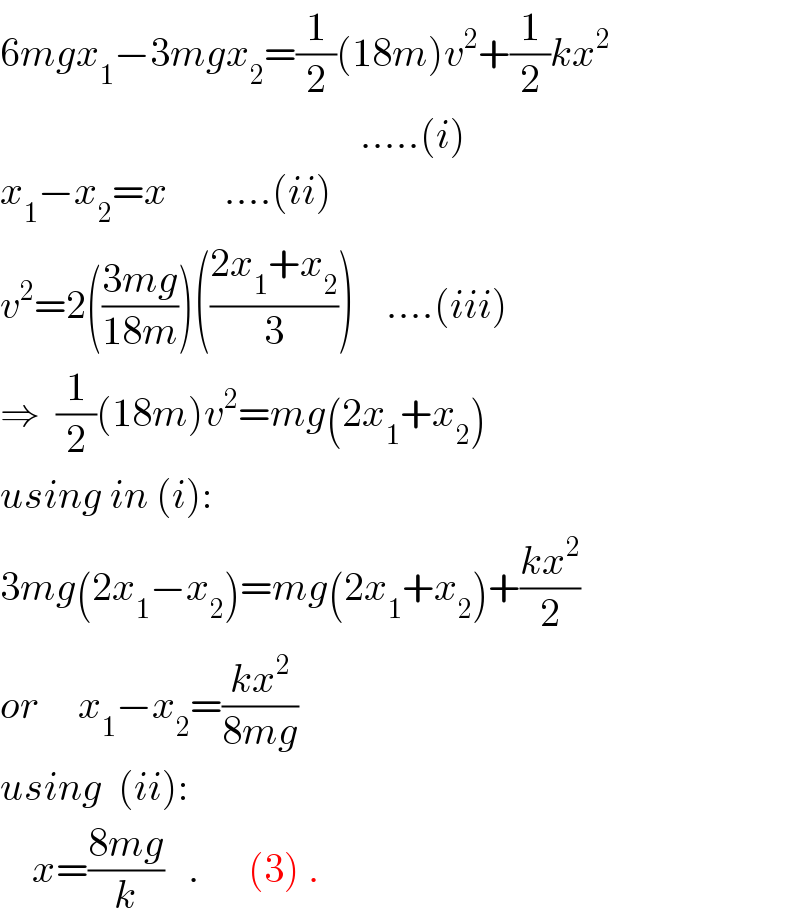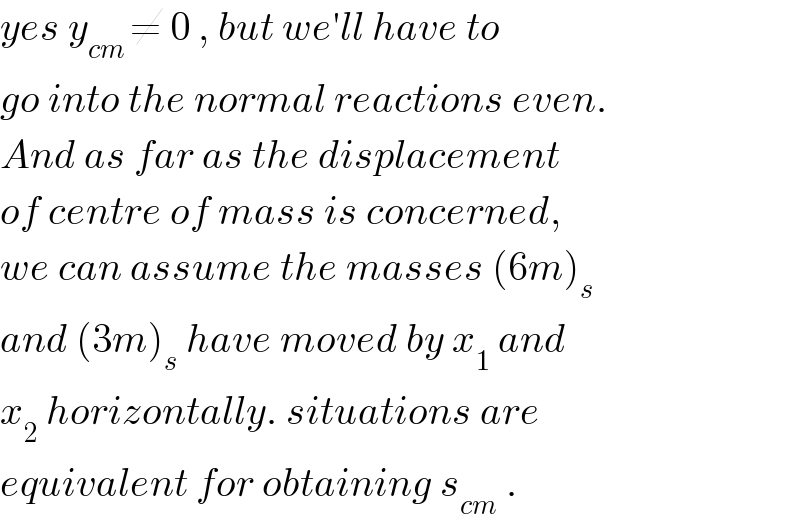
Question and Answers Forum
Question Number 34781 by Tinkutara last updated on 11/May/18

Answered by ajfour last updated on 11/May/18

Commented by Tinkutara last updated on 11/May/18
Please explain (iii) equation.
Commented by ajfour last updated on 11/May/18

Commented by Tinkutara last updated on 11/May/18

Commented by ajfour last updated on 11/May/18

Commented by Tinkutara last updated on 11/May/18

Commented by ajfour last updated on 11/May/18

Commented by Tinkutara last updated on 12/May/18
Thank you very much Sir! I got the answer. ��������
